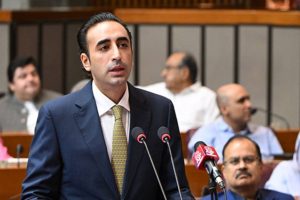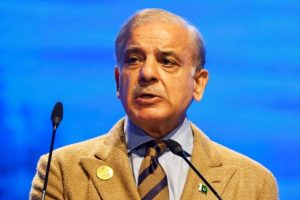Pakistan People’s Party (PPP) chairman Bilawal Bhutto Zardari, during his visit to Washington, reignited sensitive diplomatic tensions by blaming the U.S. withdrawal from Afghanistan for a spike in terrorism within Pakistan. He alleged that the hasty exit left behind advanced weapons now being used by terror groups operating inside Pakistani territory.
Zardari, speaking in a policy forum, criticized the lack of foresight in the U.S. exit strategy, saying Pakistan continues to pay the price for the fallout. “The weapons that were left behind in Afghanistan are now in the hands of terrorists. In many cases, these are more advanced than what our police are equipped with,” he said, describing ongoing struggles by Pakistani forces to counter well-armed militant factions.
Calling for stronger international and regional collaboration to combat terrorism, Zardari emphasized, “We need more cooperation—regional, international—on what to do now post-Kabul to deal with the remnants of terrorism.”
However, he stopped short of acknowledging Pakistan’s own controversial role in nurturing extremist elements over the decades, a factor often cited by global analysts as contributing to regional instability.
Zardari’s remarks drew strong reactions. Afghan political analyst Mohammad Zalmai Afghan Yar criticized Islamabad’s stance, stating, “Pakistan is threatening other regional countries. Afghanistan has chosen an economic strategy—can Pakistan do the same, or will it keep acting as a destabilizing force aligned with U.S. interests?”
The comments come at a delicate moment in Afghanistan–Pakistan relations. Both nations recently upgraded diplomatic representation, transitioning from charge d’affaires to full ambassadors after months of icy ties. However, whether Zardari’s statements will sour this fragile thaw remains to be seen.
The Taliban-led Islamic Emirate has yet to officially respond to Zardari’s accusations, though it has previously warned Islamabad against inflammatory rhetoric that could strain bilateral relations.




